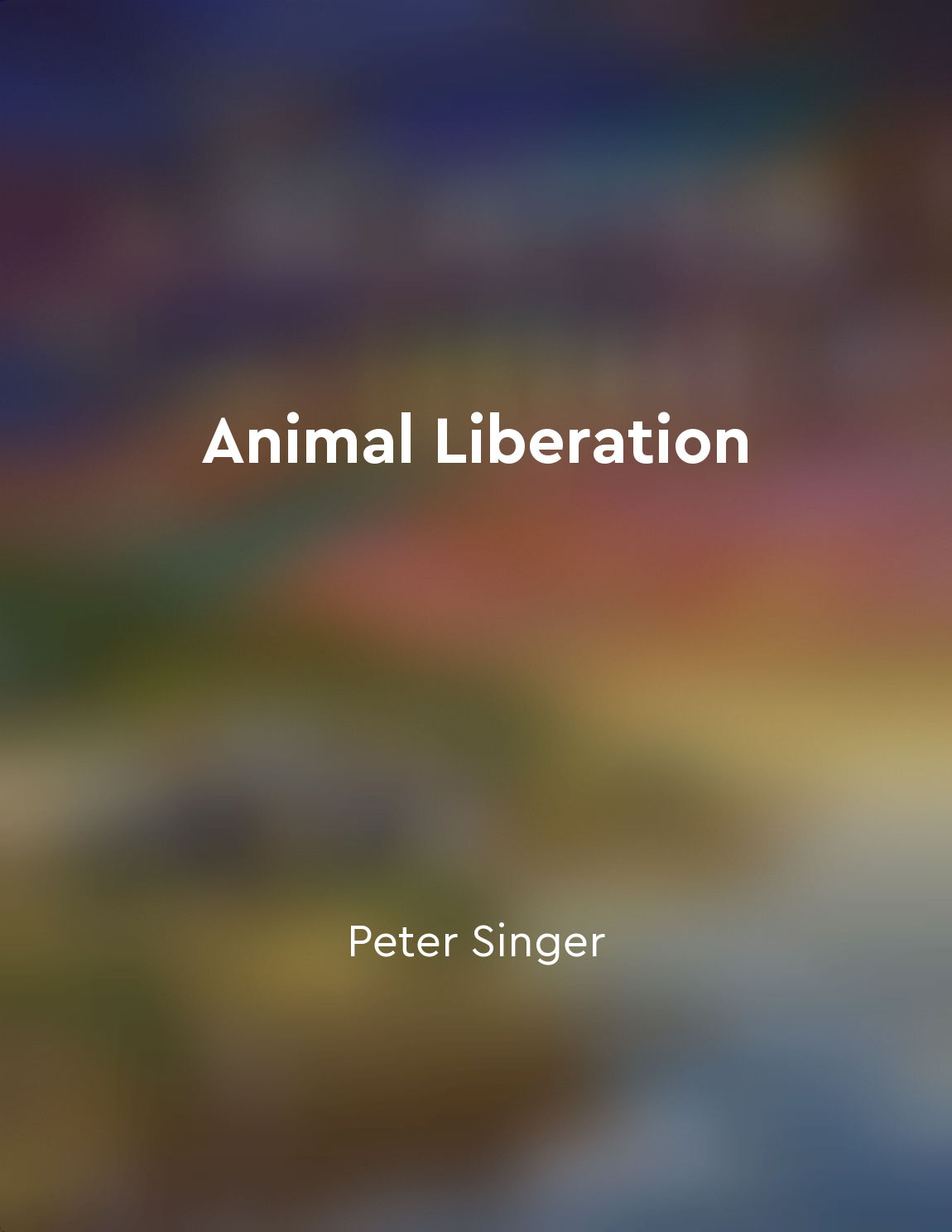Factory farming causes immense animal suffering from "summary" of Animal Liberation by Peter Singer
The system of factory farming that dominates the meat industry today is responsible for subjecting billions of animals to lives of immense suffering. In these factory farms, animals are treated not as sentient beings capable of feeling pain and pleasure, but as mere commodities to be exploited for profit. The conditions in which these animals are kept are deplorable, with little regard for their well-being or basic needs. Chickens, for example, are raised in cramped and filthy conditions, unable to engage in natural behaviors such as dust bathing or foraging. Their beaks are often cruelly mutilated without anesthesia to prevent them from pecking at each other out of stress and frustration. Pigs are confined to small gestation crates where they are unable to even turn around or lie down comfortably. They are subjected to painful procedures like tail docking and teeth clipping without pain relief. Cows in factory farms are milked to the point of exhaustion, forcibly impregnated repeatedly to keep their milk production up, and separated from their calves shortly after birth. These animals suffer both physically and psychologically from the unnatural and stressful conditions they are forced to endure. The sheer scale of suffering in factory farms is staggering, with billions of animals living and dying in misery every year. The argument that animals do not have the same capacity for suffering as humans is not a valid justification for the cruelty inflicted upon them in factory farms. Animals may not possess the same cognitive abilities as humans, but they are still capable of experiencing pain and fear. The suffering of these animals is real and undeniable, and it is our moral responsibility to take action to alleviate it. The current system of factory farming is not only morally indefensible but also environmentally unsustainable. The vast quantities of resources required to feed and house the animals in these farms contribute to deforestation, water pollution, and climate change. By transitioning to more humane and sustainable farming practices, we can not only reduce the suffering of animals but also protect the planet for future generations. It is time to rethink our relationship with animals and work towards a more compassionate and ethical food system.Similar Posts
Wealth and power concentrated in the hands of a few
In the squalid districts of Packingtown, where the air was thick with the stench of filth and the clamor of machinery, there ex...

Utilitarianism provides a basis for animal liberation
Utilitarianism, as a moral theory, holds the principle that the right action is the one that produces the greatest overall happ...
Gender equality and animal liberation are intertwined goals
The interconnectedness of gender equality and animal liberation emerges as a fundamental theme in the exploration of the cultur...
Eating meat perpetuates a cycle of violence and inequality
The consumption of meat is deeply intertwined with systems of power, violence, and oppression. When we eat meat, we are partici...
Personal choices have farreaching ethical implications
The choices we make in our daily lives may seem insignificant, but they can have profound ethical consequences that reach far b...

Compassion towards animals is a sign of moral progress
Compassion towards animals is a sign of moral progress. This statement may seem obvious, but the reality is that many people st...
